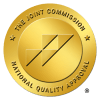Living with PTSD can feel isolating and exhausting. Our trauma-informed care in Alpharetta offers the support, safety, and clinical guidance you need to heal.
Commitment to Excellence




Seeking help for PTSD is a courageous step forward. Trauma can affect every part of your life—your relationships, your sleep, your peace of mind. But with the right support, healing is absolutely possible.
Our PTSD treatment program in Alpharetta is built around evidence-based care, delivered by a team that understands how trauma impacts both the brain and body. We treat each client with deep compassion and create a space where you can feel safe and heard.
Whether your PTSD stems from military service, abuse, an accident, or another traumatic event, we tailor your care plan to meet your unique needs and experiences.
You’re not broken—and you don’t have to go through this alone. Our trauma-informed approach helps you take back control and start living with greater ease and confidence.


Respect and Integrity
Our clients receive the utmost respect. We choose kindness and understanding over judgment or assumptions. Integrity is our guiding principle. Your unique story will be heard and valued. You are the expert of your story, we’re just guides along the way.

Compassionate
Community
Transformation is easy in a compassionate atmosphere. By weaving compassion into our language and actions, we create a network of care that touches countless lives, fostering a community rooted in empathy and support. We’re truly here for you.

Consistent Professionalism
Our team celebrates your accomplishments, supports your growth, and collaborates to help you recover. Our dedication to professionalism means you get exceptional care and support, both during and after treatment.
Our PTSD treatment in Alpharetta is for individuals who are experiencing the lingering effects of trauma. If you’re living with flashbacks, panic attacks, mood swings, avoidance, or emotional numbness, our program is designed to help.
You might be dealing with PTSD alone, or you may also be facing depression, anxiety, or substance use as a result of your trauma. Either way, you deserve specialized support from people who understand what you’re going through.
Whether this is your first time reaching out or you’ve tried therapy before, we’re here to meet you where you are. We help individuals who are ready to move forward with meaningful, lasting recovery—mentally, emotionally, and physically.





Our PTSD treatment center in Alpharetta offers a structured, personalized approach to trauma recovery. From day one, we work with you to create a treatment plan tailored to your history, symptoms, and goals.
Here’s what to expect:
Clinically proven therapies like CBT
Mind-body techniques to calm your nervous system
Safe, supportive group sessions for connection and healing
Individual therapy to help you process and grow
Relapse prevention tools if substance use is part of your journey
Many of our team members have lived experience with trauma and recovery. We know this path isn’t easy—but we also know healing is possible.
At every step, we’re here to walk alongside you with compassion, respect, and real support.
Get in touch and learn how insurance could cover 100% of life changing treatment.
At LIV Recovery Center, we use evidence-based therapies that are proven effective for PTSD. These may include cognitive behavioral therapy (CBT), eye movement desensitization and reprocessing (EMDR), and other trauma-informed modalities. Each treatment plan is personalized to match your needs, symptoms, and recovery goals.
Our program goes beyond traditional talk therapy by offering structured, multi-level outpatient care tailored for trauma recovery. We combine clinical expertise with real-world insight to create a safe and supportive space for healing. Treatment may include group work, individual therapy, skills training, and integrated support for co-occurring conditions like anxiety or substance use.
Yes. Many people living with PTSD also face challenges like anxiety, depression, or addiction. At LIV Recovery Center, we specialize in treating co-occurring disorders. Your care team will develop a treatment plan that addresses all aspects of your mental health to support long-term recovery.
Treatment length depends on your needs and progress. Some clients begin with PHP and step down to IOP or OP as they improve, while others may start at a less intensive level. We continually assess and adjust your care to make sure you’re getting the right level of support for lasting results.
We work with many major insurance providers to help cover the cost of care. Our team can verify your benefits and walk you through your options before you start. We believe finances shouldn’t stand in the way of your recovery.
We understand that once you’re ready for help, timing matters. In most cases, we can complete your assessment and begin treatment within just a few days. Reach out today and our admissions team will guide you through every step of getting started.



Learn from our team what your insurance offers